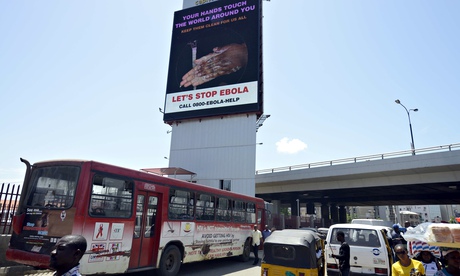
The public health crackdown on Ebola in Nigeria, which has been declared free of the virus, serves as a model for the rest of the world.
The outbreak began in Nigeria when a Liberian man, Patrick Sawyer, who had been nursing a sick relative at home, flew to Lagos on 20 July, against medical advice. He became ill on the plane and collapsed at the airport, but was treated for malaria because he did not reveal he had been in contact with the disease.
It took three days, during which time nine medical staff nursing him became infected, before Ebola was diagnosed and he was placed in isolation. He died two days later.
But as soon as the virus was confirmed, a massive public health effort began. Containment has been key to ending every Ebola outbreak in Africa in the past. Every person who may have been exposed to the virus has to be found, monitored and isolated if they develop symptoms. Even though that involved hunting through crowded buildings in streets without door numbers, Nigerian teams managed to trace everybody who had been in contact with Sawyer and everybody who had contact with those who later developed the disease.
In total, 20 people became ill in Nigeria, eight of whom died. It could have been so much worse in Nigeria’s densely populated cities: there are 21 million people in Lagos.
But Nigeria set up a centralised emergency operations centre, staffed with many public health experts who work on the polio eradication effort. More than 150 people were sent out to look for contacts of people who had become ill.
According to a paper written by some of those involved, in the journal Eurosurveillance, the list of contacts reached 898 and they were not all in Lagos. A nurse who became infected travelled more than 310 miles (500km) to Enugu, finding at least 21 contacts. But the biggest crisis was caused by one of Sawyer’s contacts, who had been infected, fleeing to Port Harcourt, where he infected a doctor. That doctor, who died, was linked to 526 contacts, including many members of his church who carried out a healing ceremony for him involving the laying on of hands.
In total, the contact tracers made 18,500 face-to-face visits to check on people for raised temperature, which can indicate the onset of symptoms, – not easy given the stigma around the disease. Their persistence, rigorous enforcement of quarantine and disinfection of premises paid off.
The authors of the paper say: “No country is immune to the risk of Ebola virus disease in a globally connected world, but … rapid case identification and forceful interventions can stop transmission.”
